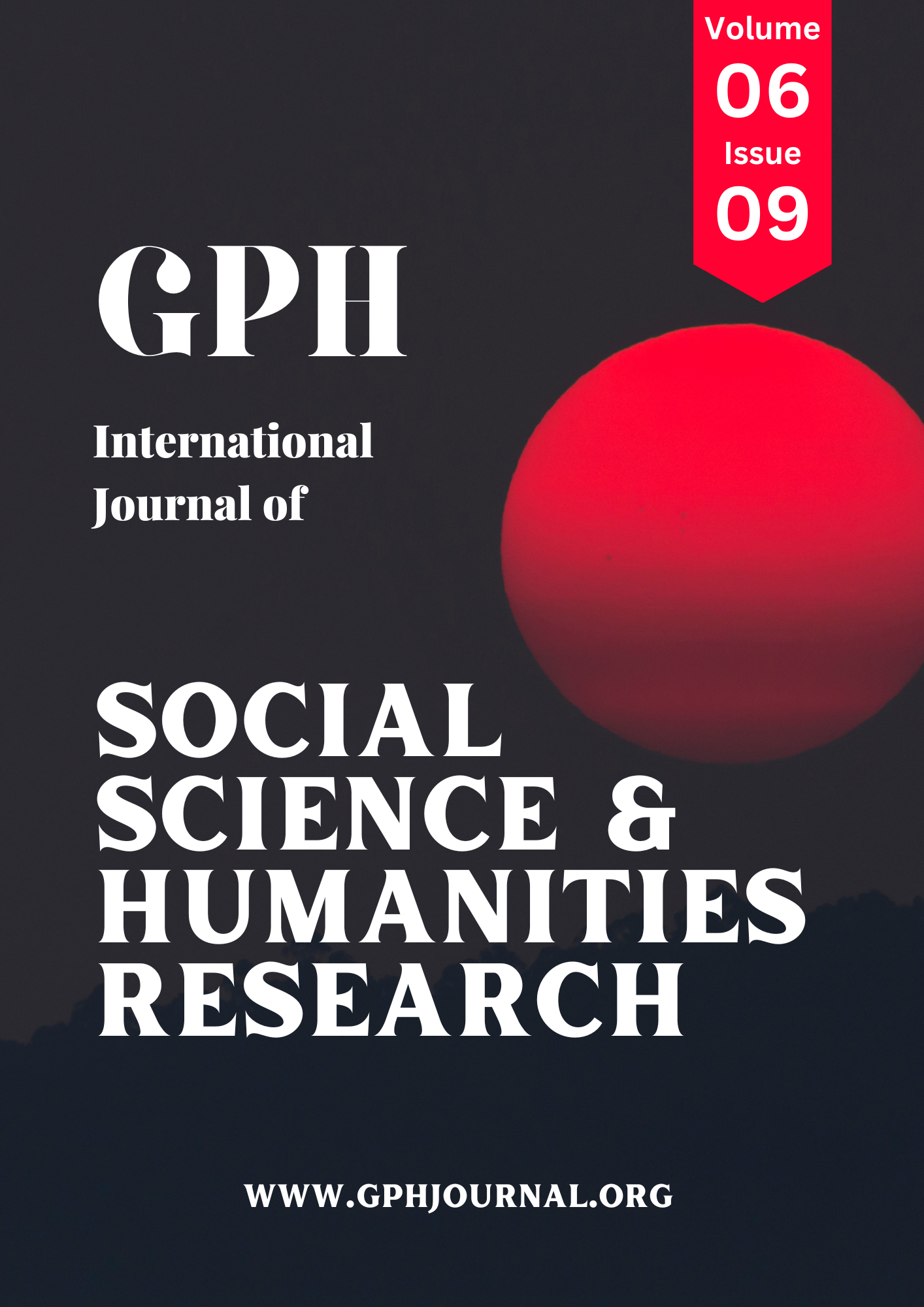A REVIEW OF ETHICAL CHALLENGES IN THE SOCIAL RESEARCH ENTERPRISE
Abstract
The challenges humans face all over the world necessitate the need for scientific research to solving the problems. Meanwhile, the process of conducting research in the social sciences may results in harm to the study participants; thus, the need for and adherence to ethical considerations to guide social scientific studies. This theoretical paper, therefore, is an attempt to review ethical challenges in the Social Sciences. The paper, which utilized the functionalist theory, identified the important role research ethical play in quality research output in the social sciences. The paper also examined the areas where ethical considerations are needed in social research, including among others: research methods, subject matter, data analysis and reporting, and utilization of research findings. Major ethical principles in social science research were highlighted in this paper. Furthermore, common ethical challenges in social research were also addressed. The paper concludes that, strict adherence to ethical standards in social research would go a long way to ensure credibility in any research enterprise, and by extension, lead to sustainable national development. An enduring strategy is therefore, needed to enhance ethical practices in the social science research. We, therefore, recommend, among others that, universities and other higher institutions of learning should establish Research and Ethics Committees that would ensure that both students and researchers always obtain ethical clearance before embarking on any research involving human beings, especially. Also, the professional bodies in the Social Science Faculty should, as a matter of urgency establish ethical codes for its members regarding the conduct of social research.
Downloads
References
research: a case of the University of Nairobi. Journal of Educational Policy and Entrepreneurial Research. Vol. 3 (12). 2016. Pp 1-9
American Sociological Association (2011). Available at:
http://www.asanet.org/about/ethics.cfm (2018- 12-17).
Association of Social Anthropologists (1999). Ethical Guidelines for Good Research
Practice. ASA
Babbie, E. (1989). The Practice of Social Research. Belmont CA: Wadsworth
Blumberg, B., Cooper, D. R, & Schindler, P. S. (2005). Business Research Methods, Mc
Graw Hill: Berkshire.
Burns, N. & Grove, S. K. (2005). The practice of nursing research: Conduct critique and
utilization, 5th ed,St. Louis, MO, Elsevier/Saunders.
Bell, E. & Bryman, A. (2007). The ethics of management research: an exploratory content
analysis. British Journal of Management, 18(1) 63-77.
Bulmer, M. (2001). The ethics of social research. Gilbert N. (Ed.). In: Researching Social
Life. (pp. 4557). London: Sage.
Beauchamp, T.L & Childress, J. F. (2001). Principles of Biomedical ethics, 5th ed, Oxford
University Press: Oxford
David, B. R. (2020). What Is Ethics in Research & why is it important? National Institute of
Environmental Health Sciences. Accessed from
https://www.niehs.nih.gov/research/resources/bioethics/whatis/index.cfm.
Freed‐Taylor, M. (1994). Ethical considerations in European cross‐national research.
International Social Science Journal. (142). Retrieved from https://books.google.lk/books
Fouka, G., & Mantzorou, M. (2018). What are the major ethical issues in conducting
research? is there a conflict between the research ethics and the nature of nursing? Health Science Journal. Available at: http://www.hsj.gr/medicine/what-are-the-major-ethical-issues-in-conducting-research-is-there-a- conflict-between-the-research-ethics-and-the-nature-of-nursing.php?aid=3485 (2018-10-14).
Fouka, G., & Mantzorou, M. (2011). What are the major ethical issues in conducting
research? Is there a conflict between the research ethics and the nature of nursing? Health Science Journal, 5 (1), 3-14.
Kour, S. (2014). Ethical and Legal issues in Educational research. Indian Journal of
Applied Research, 4(6).
Madushani, H. D. P. (2016). Ethical essues in social science research: A review. Journal
of Social Statistics.
Munhall, P. L. (1988). Ethical considerations in qualitative research. Western Journal of
Nursing Research, 10(2), 150-162.
Mugenda, A. G. (2011). Social Science Research Methods: Theory and Practice,
ARTS Press: Nairobi.
Malinowski, B. (1964). Crime and custom in a savage society. Harcourt Brace.
National Committees in for Research Ethics in Norway (2006). Guidelines for Research
Ethics in the Social Sciences, Law and Humanities. Oslo: De nasjonale forskningsetiske komiteer. Available at: https://graduateschool.nd.edu/assets/21765/guidelinesresearchethicsinthesocialscienceslawhumanities.p df (2018-12-17).
Nworgu, B. G. (2006). Educational research. Basic issues and methodology. Wisdom
publishers limited.
Oddi L.F. & Cassidy,V.R.(1990). Nursing Research in the U.S.: The protection of human
subjects. International Journal of Nursing Studies, 27(1), 21-34.
Resnik, D. B. (2015). What is ethics in research and why is it important? USA: National
Institute of Environmental Health Sciences. Available at: https://www.niehs.nih.gov/research/resources/bioethics/whatis/index.cfm (2018-12-17).
Shah, N. (2011). Ethical issues in biomedical research publication. Journal of
Conservative Dentistry, 14(3), 205-207.
Social Sciences Committee (2015). Workshop Report: Ethical Protocols and Standards
for Research in Social Sciences Today. 11th June, 2015, Brussels. Available at: https://www.scienceeurope.org/wp-content/uploads/2015/09/20150911_Workshop- Report_Social_Ethics_web.pdf (2018-09-19).
Saunders M, Lewis P. & Thornhill A. (2011). Research Methods for Business Students,
5th ed, Pearson: New Delhi.
Yunusa, E. & Usman, A. (2022). Obstacles to effective policing in Nigeria. International
Journal of Social Science and Humanities Research. Vol.10 (3). (310-326).
Copyright (c) 2023 Julius Olugbenga OWOYEMI, Edime YUNUSA, Abdulkarim Sheidu HARUNA, Ezekiel Olalekan, Momoh Alhassan MUHAMMAD

This work is licensed under a Creative Commons Attribution-NonCommercial-NoDerivatives 4.0 International License.
The authors and co-authors warrant that the article is their original work, does not infringe any copyright, and has not been published elsewhere. By submitting the article to GPH-International Journal of Social Science and Humanities Research, the authors agree that the journal has the right to retract or remove the article in case of proven ethical misconduct.














 Firozpur Jhirka, Haryana, India
Firozpur Jhirka, Haryana, India

